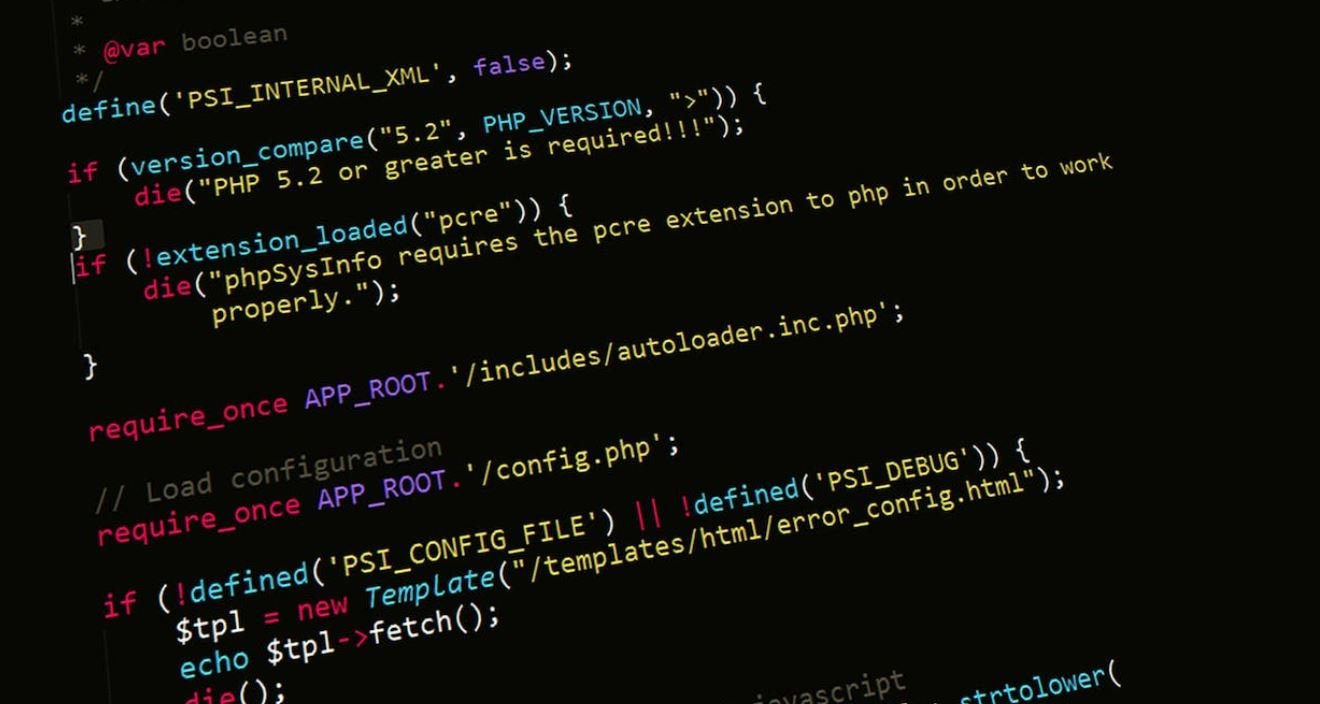AI Manufacturing Use Cases
Artificial intelligence (AI) has revolutionized various industries, including manufacturing. With advancements in machine learning and big data analytics, AI has made significant contributions to improving productivity, efficiency, and decision-making processes within the manufacturing sector.
Key Takeaways
- AI in manufacturing has led to enhanced production efficiency.
- Machine learning algorithms have enabled predictive maintenance and reduced downtime.
- Robotic process automation (RPA) has automated repetitive tasks and improved accuracy.
- AI-powered quality control systems have reduced defects and improved product reliability.
- Natural language processing assists in streamlining supply chain management.
One of the primary use cases of AI in manufacturing is enhancing production efficiency. AI algorithms can analyze complex data sets from various sensors and systems to identify patterns and optimize production processes. By continuously monitoring variables such as machine performance, environmental conditions, and workflow, AI systems can make real-time adjustments to ensure maximum efficiency and minimize waste.
For instance, AI algorithms can identify bottlenecks in production lines and suggest optimal adjustments to optimize throughput.
Another vital application of AI in manufacturing is predictive maintenance. By analyzing historical data and sensor readings, AI models can predict and prevent equipment failure or breakdowns. This proactive approach reduces downtime, improves equipment longevity, and avoids costly repairs or replacement.
Using machine learning algorithms, manufacturers can identify early signs of equipment deterioration and schedule maintenance tasks accordingly.
AI in Quality Control
AI has also significantly improved quality control systems in manufacturing. By leveraging computer vision and image recognition technologies, AI systems can detect defects or anomalies in products during the production process. This automated inspection process not only improves efficiency but also ensures high product reliability and customer satisfaction.
For example, AI-powered quality control systems can identify minute defects that are difficult for human inspectors to detect, thus significantly reducing the defect rate.
A notable area where AI has made remarkable contributions is supply chain management. Natural Language Processing (NLP) algorithms can analyze unstructured data from various sources such as emails, contracts, and social media to gain insights into supplier relationships, pricing trends, and demand forecasting. This enables manufacturers to optimize their supply chain, reduce costs, and enhance overall operational efficiency.
By extracting relevant information from a wide range of textual data, AI-powered systems can automate manual tasks such as contract review, allowing supply chain managers to focus on strategic decision-making.
AI Integration in Manufacturing
AI integration in manufacturing is a step-by-step process. Manufacturers need to assess their specific needs, perform extensive data analysis, and choose suitable AI technologies that align with their goals. It is essential to ensure that the chosen AI solutions can seamlessly integrate with existing systems and provide actionable insights.
Additionally, organizations should invest in employee training and development to utilize AI to its fullest potential. AI-assisted decision-making can greatly improve operational efficiency but requires skilled professionals to interpret and act upon the generated insights effectively.
| Use Case | Benefits |
|---|---|
| Production process optimization | Enhanced efficiency, reduced waste |
| Predictive maintenance | Reduced downtime, improved equipment longevity |
| Quality control automation | Improved product reliability, reduced defect rate |
| Supply chain optimization | Cost reduction, improved operational efficiency |
Implementing AI technologies in manufacturing requires careful planning and consideration. However, the potential benefits of AI integration far outweigh the initial challenges. By harnessing the power of AI, manufacturers can propel their operations towards greater efficiency, productivity, and competitiveness.
AI is shaping the future of manufacturing, and organizations that embrace this technology will stay ahead of the curve in an ever-evolving industry.
| Benefit | Description |
|---|---|
| Improved productivity | Automation and optimization of processes lead to increased output. |
| Cost savings | Efficient use of resources and reduced waste result in financial savings. |
| Better decision-making | AI-powered analytics provide accurate and timely insights for informed decision-making. |
| Enhanced product quality | Automated quality control systems reduce defects and enhance product reliability. |
The Future of AI in Manufacturing
Looking ahead, the future of AI in manufacturing is promising. The convergence of AI with other transformative technologies such as Internet of Things (IoT) and robotics holds tremendous potential for further advancements in the manufacturing landscape. These developments will continue to drive efficiency, innovation, and sustainability in the industry.
Organizations that embrace AI and adapt to the changing manufacturing landscape will be well-positioned to thrive in the digital era.
References
- “The Role of Artificial Intelligence in Manufacturing,” Forbes.
- “Artificial Intelligence in Manufacturing Market Report,” Market Research Future.
- “The Impact of AI on Manufacturing,” McKinsey & Company.
| Impact | Description |
|---|---|
| Increased efficiency | Optimized processes lead to higher productivity and reduced costs. |
| Improved safety | AI-powered systems enhance workplace safety through real-time monitoring and predictive maintenance. |
| Greater customization | AI enables personalized production and customization according to individual customer preferences. |
| Accelerated innovation | AI tools facilitate rapid prototyping and innovation cycles, enabling faster time-to-market. |

Common Misconceptions
Misconception #1: AI Takes Over Jobs Completely
One common misconception about AI in manufacturing is that it will completely replace human workers, leading to widespread unemployment. However, the reality is that AI is designed to complement human skills and enhance productivity, not to replace workers altogether.
- AI in manufacturing can automate repetitive tasks, allowing workers to focus on more complex and creative aspects of their jobs.
- AI can assist workers in making better, data-driven decisions by analyzing large volumes of data and providing insights.
- Rather than replacing jobs, AI can create new roles and job opportunities in areas such as AI system management and data analysis.
Misconception #2: AI Manufacturing Use Cases Are Limited to Large Companies
Another misconception is that AI in manufacturing is only applicable to large companies with extensive resources. However, AI technology is becoming more accessible and affordable, and its use cases extend to businesses of all sizes.
- Small and medium-sized manufacturing companies can benefit from AI in streamlining production processes and improving efficiency.
- AI solutions can help identify areas of waste, optimize supply chains, and reduce costs for businesses of any size.
- Cloud-based AI platforms enable companies to leverage AI capabilities without heavy upfront investments, making it more accessible to smaller players.
Misconception #3: AI Manufacturing Use Cases Are Limited to Robotic Automation
Many people assume that AI use cases in manufacturing are limited to robotic automation on the shop floor. While robotic automation is indeed a prominent application, AI technology has a broader range of applications in the manufacturing industry.
- AI can be leveraged for predictive maintenance, identifying equipment failures before they occur and reducing downtime.
- AI can enhance quality control by identifying defects in real-time during the production process, reducing waste and improving product quality.
- AI can enable demand forecasting and optimize inventory management, ensuring efficient production planning and reducing stockouts.
Misconception #4: AI in Manufacturing Is Only for Established Businesses
There is a misconception that AI in manufacturing is only suitable for long-established businesses with a wealth of historical data. However, even startups and newer companies can leverage AI technology to optimize their operations and compete in the market.
- AI can analyze real-time data and provide valuable insights for startups, helping them make informed decisions and adapt quickly.
- Machine learning algorithms can be trained on available data, making predictive analytics and forecasting beneficial for newer companies as well.
- AI-powered quality monitoring and defect detection can help startups establish a reputation for reliable and high-quality products.
Misconception #5: AI Manufacturing Use Cases Are Only About Efficiency
While AI is indeed known for its ability to improve efficiency in manufacturing operations, it also offers other significant benefits beyond just efficiency gains.
- AI can enable customization and personalization of products by analyzing customer data and preferences.
- AI technology can enhance safety in manufacturing environments by detecting potential hazards and mitigating risks.
- AI-driven insights can help manufacturers identify new market opportunities and develop innovative products to meet customer demand.

Intelligent Quality Assurance in Manufacturing
In order to ensure the highest quality standards, AI technologies are being implemented in manufacturing processes. This table showcases the various use cases of AI in quality assurance.
| Use Case | Benefits |
|---|---|
| Automated Defect Detection | Increased accuracy and speed in identifying defects. |
| Predictive Maintenance | Minimized equipment downtime and reduced maintenance costs. |
| Real-time Quality Monitoring | Immediate detection of quality issues, enabling prompt remedial action. |
AI-Driven Supply Chain Optimization
The integration of AI technologies in supply chain management revolutionizes operations. This table highlights the applications of AI for optimizing supply chain processes.
| Application | Advantages |
|---|---|
| Inventory Management | Reduced stockouts, enhanced demand forecasting. |
| Route Optimization | Efficient transportation scheduling, reduced delivery times. |
| Real-time Demand Analysis | Improved market responsiveness, minimized inventory holding costs. |
AI-Enabled Predictive Maintenance
Predictive maintenance powered by AI improves overall equipment effectiveness and reduces downtime. This table presents different use cases of AI in predictive maintenance.
| Use Case | Benefits |
|---|---|
| Vibration Analysis | Early detection of equipment failures, increased operational reliability. |
| Machine Learning-based Failure Prediction | Reduced maintenance costs, optimized maintenance schedules. |
| Remote Diagnostics | Streamlined troubleshooting, decreased response time. |
AI-Assisted Worker Safety
AI technologies play a significant role in enhancing worker safety within manufacturing facilities. The below table outlines various AI applications for ensuring worker safety.
| Application | Advantages |
|---|---|
| Automated Hazard Detection | Immediate identification and mitigation of hazardous conditions. |
| Worker Behavior Monitoring | Reduced accident rates, improved safety training programs. |
| Ergonomics Assistance | Prevention of work-related injuries, enhanced worker comfort. |
AI-Enhanced Product Development
AI capabilities are leveraged to optimize product development cycles. This table showcases various AI enhancements for product development processes.
| Enhancement | Benefits |
|---|---|
| Design Optimization | Improved product performance, reduced material waste. |
| Failure Analysis | Early identification of design flaws, increased product reliability. |
| Virtual Prototyping | Reduced time to market, cost-effective testing. |
AI-Driven Supply and Demand Forecasting
AI-driven supply and demand forecasting optimizes production planning and inventory management. The following table highlights key components of AI-enabled forecasting.
| Component | Benefits |
|---|---|
| Big Data Analytics | Accurate demand prediction, reduced stockouts and overstocking. |
| Market Trend Analysis | Enhanced market responsiveness, increased competitive advantage. |
| Predictive Algorithms | Improved inventory optimization, reduced carrying costs. |
AI-Integrated Industrial Robotics
Integrating AI into industrial robotics enhances automation capabilities. This table highlights the application areas of AI in industrial robotics.
| Application Area | Advantages |
|---|---|
| Intelligent Pick and Place | Efficient handling of different objects, increased production speed. |
| Collaborative Robots (Cobots) | Safe human-robot interaction, flexible automation. |
| Machine Tending | Reduced manual labor, improved production efficiency. |
AI-Enhanced Risk Management
AI technologies contribute to effective risk management strategies. The following table outlines AI’s applications in risk management within the manufacturing sector.
| Application | Benefits |
|---|---|
| Anomaly Detection | Early identification of irregularities, minimized business disruptions. |
| Fraud Detection | Reduced financial losses, strengthened security measures. |
| Supply Chain Risk Assessment | Improved risk mitigation strategies, enhanced supplier selection. |
AI-Driven Energy Efficiency
AI technologies offer substantial energy-saving opportunities in the manufacturing industry. This table presents AI-based solutions for improving energy efficiency in manufacturing.
| Solution | Advantages |
|---|---|
| Smart Lighting Systems | Reduced energy consumption, enhanced lighting quality. |
| Optimized HVAC Control | Lowered energy usage, improved indoor comfort. |
| Real-time Energy Monitoring | Identified energy waste, optimized energy consumption. |
From ensuring product quality to optimizing supply chains, enhancing worker safety to streamlining product development, AI technologies have proven their transformative capabilities in the manufacturing sector. By harnessing the power of AI-driven solutions, manufacturers can achieve higher efficiency, reduced costs, and improved competitiveness. Embracing AI in manufacturing is no longer a luxury but a necessity for businesses striving to stay ahead in today’s rapidly evolving market.
AI Manufacturing Use Cases – Frequently Asked Questions
Question 1: What are some common AI-powered use cases in manufacturing?
Answer: Some common AI-powered use cases in manufacturing include predictive maintenance, quality inspection, demand forecasting, supply chain optimization, robot control, and process automation.
Question 2: How does AI improve predictive maintenance in manufacturing?
Answer: AI can analyze historical data, sensor readings, and maintenance records to predict potential machine failures and schedule maintenance before breakdowns occur, reducing unplanned downtime and improving overall equipment effectiveness.
Question 3: Can AI be used for quality inspection in manufacturing?
Answer: Yes, AI can analyze images and sensor data to detect defects or anomalies in products, allowing manufacturers to identify and address quality issues early in the production process, ensuring higher product quality and reducing waste.
Question 4: How can AI optimize supply chain management in manufacturing?
Answer: AI can analyze vast amounts of data from various sources, including sales forecasts, inventory levels, and market trends, to optimize inventory management, demand forecasting, scheduling, and logistics, improving supply chain efficiency and reducing costs.
Question 5: What role does AI play in robot control in manufacturing?
Answer: AI algorithms can enable robots to perform complex tasks with precision, adapt to changing environments, and learn from experience, leading to enhanced automation capabilities and increased productivity in manufacturing processes.
Question 6: How does AI automate manufacturing processes?
Answer: AI can automate repetitive and time-consuming tasks, such as data entry, inventory management, order processing, and scheduling, freeing up human workers to focus on more complex and strategic activities, improving overall operational efficiency.
Question 7: Is AI widely adopted in the manufacturing industry?
Answer: Yes, AI adoption in the manufacturing industry is growing rapidly. Many leading manufacturers are already leveraging AI technologies to gain a competitive advantage, improve productivity, and optimize various aspects of their operations.
Question 8: What are the benefits of using AI in manufacturing?
Answer: The benefits of AI in manufacturing include increased operational efficiency, improved product quality, reduced downtime and maintenance costs, optimized supply chain management, enhanced automation capabilities, and better decision-making through data-driven insights.
Question 9: Are there any challenges in implementing AI in manufacturing?
Answer: Yes, some challenges in implementing AI in manufacturing include data quality and availability, integration with existing systems, upskilling the workforce, ensuring data privacy and security, and managing change within the organization.
Question 10: How can a manufacturing company get started with AI adoption?
Answer: A manufacturing company can get started with AI adoption by identifying specific use cases that align with their business goals, building partnerships with AI solution providers, assessing data readiness, developing a well-defined AI strategy, and gradually piloting and scaling AI initiatives within their operations.




